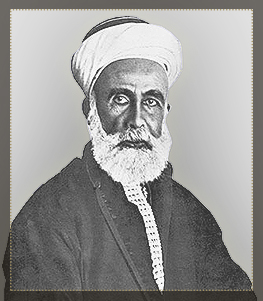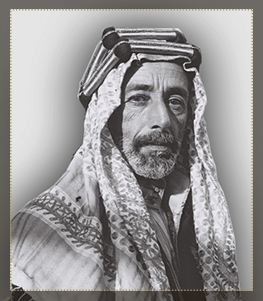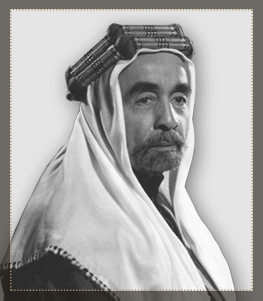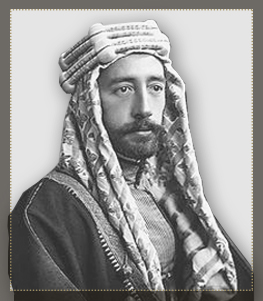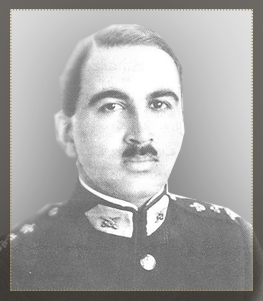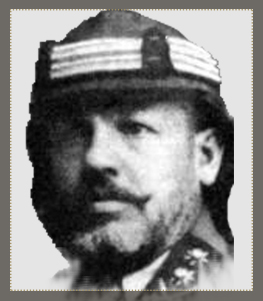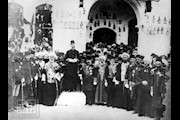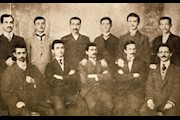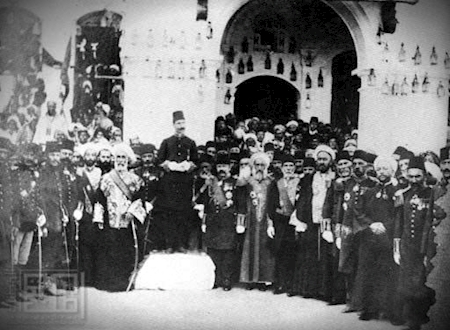
Arabs looked up to Sharif Hussein bin Ali as their leader after he was appointed Sharif of Al Hijaz of Mecca in 1908. This initiative first bore fruit in 1913, with 35 Arab members of the Ottoman Chamber of Deputies delegating Sharif Hussein to speak for the Arabs.
Arab members of parliament delegated Sharif Hussein through a memo filed by Captain Taleb Pasha, the captain of Basra’s notables and head of the reformist society there. In a letter, he wrote: “We recognise your zeal to protect our religion and nation. We are ready to stand beside you if you rise to remove this yoke which has grown heavy on Arabs’ shoulders and lift them from the oppression and slavery they are facing.”
The Arab parliamentarians’ memo addressed Sharif Hussein: “We, the Arab members of the Ottoman Chamber of Deputies, recognise you as emir of Mecca, and grant you — and no other — the religious leadership of all Arab countries. Our consensus is on behalf of our fellow countrymen to be made public when necessary. May God protect you for your nation and assist you in driving evil away from your religion.”
In this capacity, Sharif Hussein chose to offer his foresight and advice on major milestones in history, including his advice for Turkey not to join World War I on Germany’s side. The Sharif believed that Arabs are the partners of Turks in administering the state and that they have the right to participate in taking political decisions related to its future and fate.
In parallel with Turkey entering the war, Djemal Pasha led acts of subjugation, arrest, banishment and execution against Arabs in Syria and Iraq. In addition, economic conditions at Arab countries, especially Syria, were at such a deteriorated state that people had to wade in piles of garbage to search for leftovers of oranges, pieces of food, or any piece of trash that would silence their hunger.
Amidst these difficult circumstances, the patriots of Syria and Iraq called on Sharif Hussein to lead the Revolt against the Turks, in his capacity as “the father of Arabs, the leader of Islam, the greatest Arab Emir and the most noble”. The letter addressed to the Sharif was signed by a number of Iraqi and Syrian military officers, such as Yassin Hashemi and Ali Rida Al Rakabi. They also included a number of civilians, including Abdul Ghani Arissi. This letter was delivered to the Sharif by Fawzi Al Bakri in January 1915.
At a meeting with a British foreign office employee, Mr. Clark, on January 1915, Izzat Pasha Al Abed, the second secretary under Sultan Abdul Hamid II, said: “There is no chance that Arabs will stand as one in the face of Turks and liberate themselves without an Arab caliphate, and the only qualified candidate is Sharif Hussein bin Ali, the Sharif of Mecca.” Ali Al Mirghani, the major religious leader in Sudan, had a similar view. In addition, Emir Said Al Jazairi, who visited Mecca during the presence of Waheeb Pasha, told the Sharif: “You are the second man in the high state after the caliph. Who else would be our emir if the caliphate is hit?”
The above clearly indicates that Sharif Hussein did not take up the leadership of Arabs in their Revolt against the Turks out of his own initiative. The Arabs, with their parties, societies, clubs, rulers, and religious and intellectual leaders proclaimed him the leader of their Revolt. This is most evident in the memo Prince Faisal presented to the Paris Peace Conference of 1919, in which he wrote: “My father became the leader of the Arab nationalist movement during the war at the request of the movement’s branches in Syria and Iraq, which sent him the call to lead.”
Prince Faisal repeated the same idea in his speech at the Syrian National Congress, saying: “My father entered the war on the side of the Allies after he was given entrusted by the Arabs of the peninsula, Syria and Iraq to do so.”
